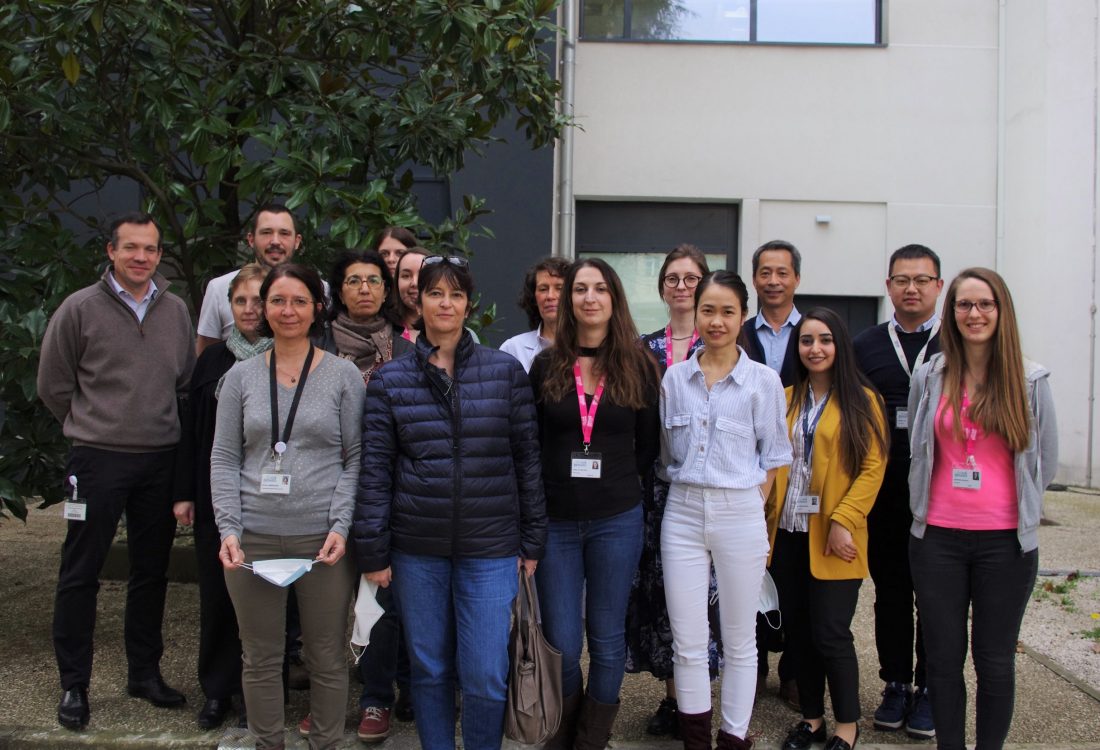Endocrine resistance, methylation and breast cancer

Context and objectives
Context
Breast cancer (BC) is a heterogeneous disease in which alterations in genes such as Estrogen receptor ERα, progesterone receptor (PR) and HER2 affect the clinical behaviour of the disease and the response of patients to targeted therapies. About 80% of primary breast tumors express ERα and endocrine therapy has led to a significant improvement in cell survival. However, 40% of patient are resistant to treatments. Furthermore, triple negative breast cancers are highly aggressive with rapid and frequent local and distant relapse, and not amenable to targeted therapy. These elements underline that there is an urgent need to identify new actors of the breast tumorigenesis in order to find new biomarkers. A recent surge of interest for other members of the nuclear receptor family such as androgen (AR) and glucocorticoid receptors (GR) is noteworthy. These receptors have opposite roles in ERα-positive and ERα-negative tumors, revealing an unanticipated level of complexity. In addition, different variants of these steroid receptors need to be taken in consideration. Steroid receptors are transcription factors regulated by hormone binding that modulates transcription by recruiting coregulator proteins to DNA sequences in the genome that are enhancer and silencer elements controlling the expression of specific genes. Coregulators modulate local chromatin conformation and activate or inhibit recruitment and activation of RNA polymerase II. In another hand, transcriptional activity of steroid receptors and their coregulators is highly regulated by post-translational modifications as lysine or arginine methylation, involving enzymatic activities of lysine methyltransferases (KMTs) and arginine methyltransferases (PRMTs). However, these enzymes can also modify histones, adding another level of complexity. In addition, these enzymes are overexpressed in BC, associated with oncogenic activities and specific inhibitors of their catalytic activity make them promising therapeutical targets.
Objectives
Our team “Endocrine resistance, methylation and breast cancer” aims to decipher the molecular mechanism involved in resistance to different treatments in order to identify new therapeutical target and new drugs specific to different subtype of BC. Complementarity between researchers and clinicians is an undeniable asset to transfer the results obtained in the laboratory to patients.

Projects
Project 1 : NESTOR
Understand how PRMT5 regulate the transcriptional activity of steroid receptors in the different subtype of BC
Project 2 : METEOR
Targeting PRMTs in order to sensitize breast tumors to conventional therapy
Project 3 : GLUCOCAN
Decipher how GR regulates breast tumorigenesis (metastasis formation and chemotherapy resistance) : new ligands, news partners involved in enhancer complexes.
Project 4 : ISOTHER
Development of a new anti-tumoral therapy using ADC targeting ERα36, an ERα variant expressed at the membrane of breast tumoral cells.
-
Co-direction :
Muriel Le Romancer, DR2 INSERM
Muriel.leromancer@lyon.unicancer.fr
0478782822Olivier Trédan, Médecin oncologue, PH, CLB
Olivier.tredan@lyon.unicancer.frCheney A, 1ème étage
Centre Léon Bérard